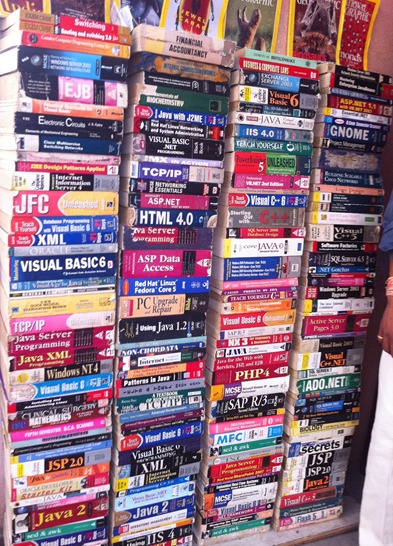I got an email recently from a long-time programmer who had to step out of the game for a little while. They basically had a hiatus from programming due to situations out of their control, but now are looking at getting back in.
They asked, quoting from the email:
If you had to “start over,” what are the technologies, languages, paradigms and platforms I need to be up-to-date and mastering in my new world of 2014?
It’s daunting if not downright scary. I can *learn* anything, and do - quickly. I feel like I’ve been sooooo out of the loop, it’s not even funny.
 I think we can all relate to feeling like this. I've talked about this before in my post "I'm a phony" about imposter syndrome. Technology is changing so fast it's hard to be a "professional" at anything. Ultimately, we're all amateurs.
I think we can all relate to feeling like this. I've talked about this before in my post "I'm a phony" about imposter syndrome. Technology is changing so fast it's hard to be a "professional" at anything. Ultimately, we're all amateurs.
To the root question, though, what technologies would I learn?
This question comes up a lot. I tell people this. Learn one language you can build large systems with AND also learn JavaScript. For me, that's C# and JavaScript. For someone else, the "systems" language might be Erlang, or Groovy, or Ruby, or Java, or Scala. That language matters less to me. Your goal is to be able to write applications for the web, as well as write other systems.
Pick a language that feels right
Learn a language that has a community behind it and that has been a part of building successful systems. Learn a language that lets you create the kinds of systems you want to create. For me, I picked C# because I can write web apps, Windows apps, Mac apps, iPhone apps, Windows Phone apps, SmartWatch apps, and tiny embedded apps, but above all because I enjoy writing C#.
There are many other languages that have a wonderfully rich breadth of power and expressiveness. Python is one, Java is another, and JavaScript and node can even control robots. Pick a language with personality and breadth, and learn that language the hard way, by doing. Read lots of code and lots of books. Pick a language that fits your brain and helps you learn how to think, and when you do think, think about abstractions'.
Write while you learn your new language. Write about what you discover, what works, what doesn't. Write even though no one may be reading; you may find that they are reading. Join your new language's community and go to its user groups. Remember not to have ego, you are not your code.
Bet on the Web
There's lots of talk about App Stores these days. Everyone has them and they are clearly where the money is made. But today's (2014's) App Stores are still broken. Updates are a hassle, even when they are automatic. Apps (on all platforms) get stuck in broken updating states and have to be reinstalled, updates are often huge and rarely use smart patching and deltas. App Stores can become weed-filled gardens if they aren't attended to.
The web persists, though. We have issues like net neutrality to work out, and walled gardens like Facebook, our standards orgs are stuck in committee, and we get a new identity subsystem every few years, but the web is winning. The web will persist and the web will win. That's why I suggest you learn JavaScript. (Learn HTML5 and CSS3 also and learn to create and consume JSON services.) JavaScript is the virtual machine that we all have installed and JavaScript is the language of the web. (For some, JavaScript is Assembly Language.) It's not going anywhere, so that why you should learn it.
Aim to be able to create web sites, web apps, and rich connected apps and systems. Also aim to know a language that lets you write applications that you can put in the App Store for any of a billion connected devices.
That's my advice to someone starting over in 2014.
Sponsor: Big Thanks to Aspose for sponsoring the blog this week! Aspose.Total for .NET has all the APIs you need to create, manipulate and convert Microsoft Office documents and a host of other file formats in your applications. Curious? Start a free trial today.
© 2014 Scott Hanselman. All rights reserved.




